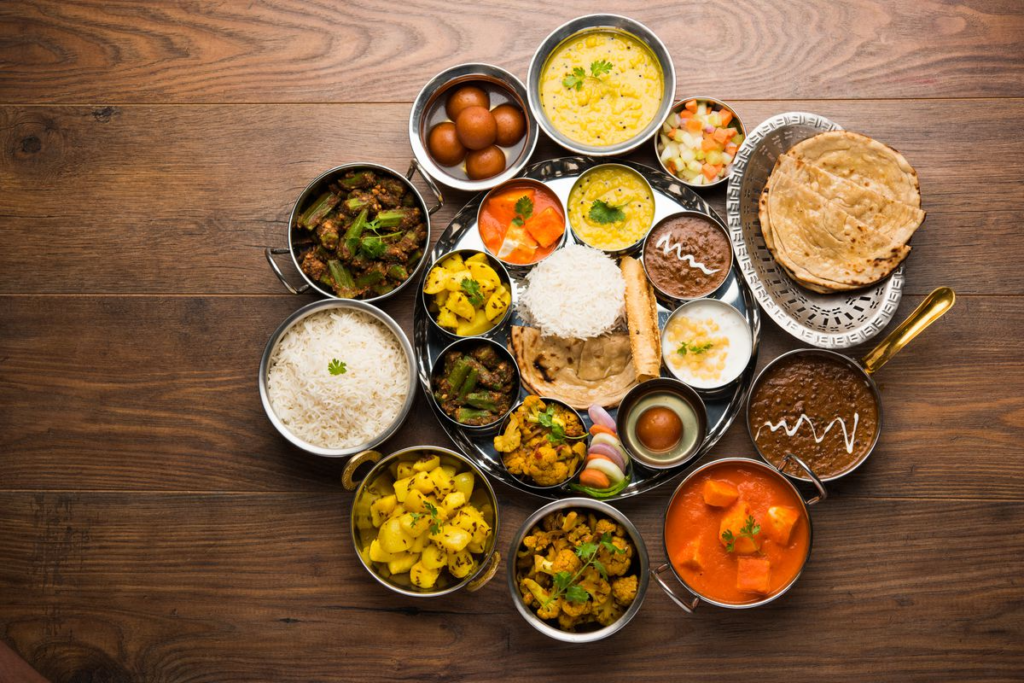India stands at a transformative juncture in its food industry evolution with a consumer base dominated by Gen Z and Millennials with increasingly global tastes and preferences and growing interests in local traditions. This duality presents a unique set of challenges and opportunities for food and beverage (F&B) companies looking to capture and cater to this dynamic market.
India-based consumers are embracing global trends in food ingredients
The global food industry continues to evolve with new ingredients and cooking techniques. Understanding the needs of modern consumers, who are digital natives and globally informed is crucial, for creating products and experiences that resonate with their evolving aspirations. Several key global trends have significantly influenced India-based consumer demand for food & beverage products.
One prominent trend is the growing emphasis on being ‘good for people and planet’. Consumers are prioritizing health and wellness and are willing to pay a premium for it. By 2026, India is projected to have 176 million health-conscious consumers in a $30 billion market. 78% of consumers surveyed in a Deloitte-FICCI report also indicated a willingness to pay a premium for healthy food and beverages. Functional ingredients offering health benefits, like probiotics and superfoods, are also gaining popularity. India-based consumers are increasingly looking for foods with added health benefits, such as fortified products, ‘good for the gut’ innovations, and protein-rich snacks.
Additionally, there is a rising demand for sustainable, ethically sourced ingredients and products. In India, Gen Z consumers are increasingly conscious of their actions’ environment and ethical impacts, with decisions influenced by brand purpose and actions toward ethical innovation and agriculture transformation; even in the face of cost pressures. There is also an increased emphasis on upcycled ingredients and reducing food waste.
Another trend shaping the market is the demand for clean, simple and convenient products. The increasing demand for clean-label products may result from Indian consumers’ growing awareness of the potential risk of ultra-processed foods, including links to obesity, diabetes and heart disease. This awareness has driven a rise in demand for natural and minimally processed alternatives locally. Consumers actively want simplicity in their purchasing journey and need assistance in finding the right products. The rise of front-of-pack nutritional labels worldwide is appealing to busy, health-conscious consumers and guiding their purchasing decisions. A survey conducted by The Food Safety and Standards Authority of India (FSSAI) regarding a proposal for an “Indian Nutrition Rating” label revealed that consumers want a clear indicator for ultra processed foods and prefer a red dot warning system over the proposed rating model. Additionally, the demand for convenience is on the rise, as consumers increasingly favor immediacy in an ‘on-demand’ era and are willing to pay for products that help them be more efficient. Deloitte-FICCI’s 2023 India consumer sector survey found 37 percent of consumers favored quick commerce over traditional e-commerce for food and beverages.
Lastly, the concept of being ’globally relevant, familiar and authentic’ has become central to consumer preferences, driving a surge in demand for fusion foods that marry global and local culinary elements. With more consumers travelling and seeking international flavors and culinary experiences, new product development launches have increasingly reflected a rich tapestry of flavors and experiences locally. This is complemented by the Gen Z driven ‘newstalgia’ trend which combines a longing for the familiar when trying new types of food. There is growing consumer interest in India for authentic, region-specific flavors, driving demand for packaged foods that offer a taste of local cuisines. These growing interests in local and indigenous flavors have seen consumers in India learning more about the country’s many communities, even as they enjoy more diverse meals and redefine what ‘Indian food’ represents.
Integrating authentic Indian elements

F&B manufactures can be future-ready by addressing consumer trends and growing demands. For example, products can be reformulated by replacing artificial colors and preservatives with minimally processed ingredients. Collaborating with an ingredient innovation and solutions partner can also enable speed to market, finding natural, minimally processed replacements without compromizing on taste. Beyond the functional ingredients and superfoods in global cuisine, businesses in India can leverage on traditional herbs and spices like turmeric (haldee), ginger (adarak), and tamarind (imalee) in formulations to incorporate the familiar and authentically Indian fusion that appeals to health-conscious consumers. Drawing upon the rising popularity of Cascara, an upcycled ingredient from coffee cherries, can pack in both ‘better for you’ antioxidants and a novel taste profile. Other innovations, such as sugar-free cocoa solutions and nut-based beverages or cleaner-label snacks made from locally sourced nuts and spices can also appeal to those who seek sustainable, ethically sourced ingredients and products. Additionally, offering products that cater to specific dietary needs, such as gluten-free, low sugar, and high-protein options, can attract a broader audience.
Partnering to make positive change
India’s food industry is changing rapidly, and businesses focused on making it real are well positioned to meet the evolving needs of consumers. As disruptions to food supply become more frequent, the industry should look to encourage consumers to trust and embrace new sources, ingredients and flavors that will emerge both locally and globally. A collaborative approach involving suppliers, regulatory bodies, and food brands & manufacturers can help the industry overcome challenges and unlock long term growth potential.
On a global scale, India’s rich culinary heritage and its growing reputation as an innovator provides the opportunity for the market to be a leader in the ongoing global food evolution. With expectations for brands to champion environmental responsibility and inclusive sustainability, the private sector has an important role here, companies that prioritize transparency will thrive in this evolving market. By providing clear, accessible information and leveraging technology for traceability, businesses can build trust and foster loyalty. While achieving full transparency poses challenges due to the complexity of global supply chains, the right technology can help overcome these. Advanced traceability systems allow companies to maintain accurate records of every step in the supply chain, from production to distribution, ensuring consumers receive reliable information about their food.



